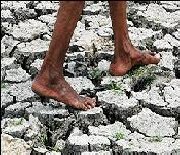
Article submitted to Soninkara.com by Monique Chastanet .
summary
The names given to the years of famine , which occurred in Soninke country ( Upper Senegal ) at the end of the 19th and 20th century show how these crises are part of the collective memory : they tell us about their timing, their perceptions and experiences . Include designations of this type in other parts of Africa, subject to recurrent food crises. And also, though more rarely , in preindustrial European societies.
These events can leave other traces , through " names " attributed to children born during a famine. Soninke include these names with those given to children born in other difficult circumstances, after ( s) death of brother (s) or sister (s) , toddler, under the term " names tired " . By this we mean "names of children whose mother is tired," within the meaning of "desperate" . Apparently disparaging , these names are intended to distract evil spirits to ensure the survival of children. They were accompanied always accompany or elsewhere in Africa , protective rituals. We can compare these practices of how European companies have responded in the past , face a high infant mortality.
Keywords
Africa - Europe - Soninkés - famine names - names and protective rituals - Food Crisis - Infant mortality - memorials and historical markers .
references
CHASTANET Monique, 2013, "Time, memory and life names and famine 'names tired' Soninke countries (Senegal)" in FAUVELLE-AYMAR F.-X. HIRSCH and B. (ed.), The tricks of the historian. Trials in Africa and elsewhere in tribute to Jean Boulègue, Paris, Karthala: pages 275-306.
